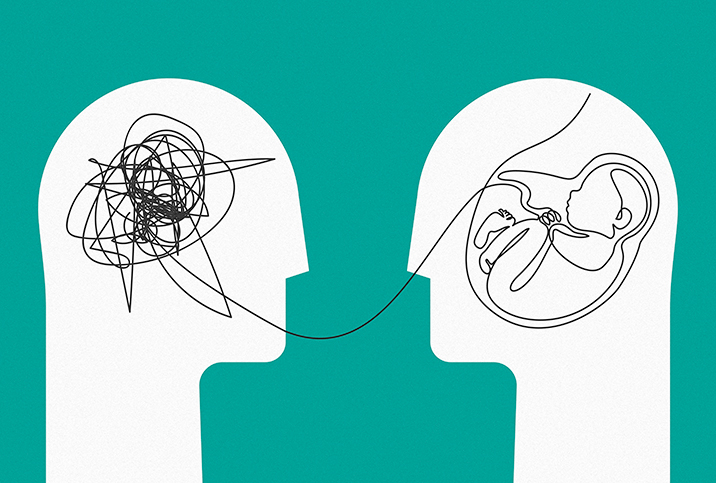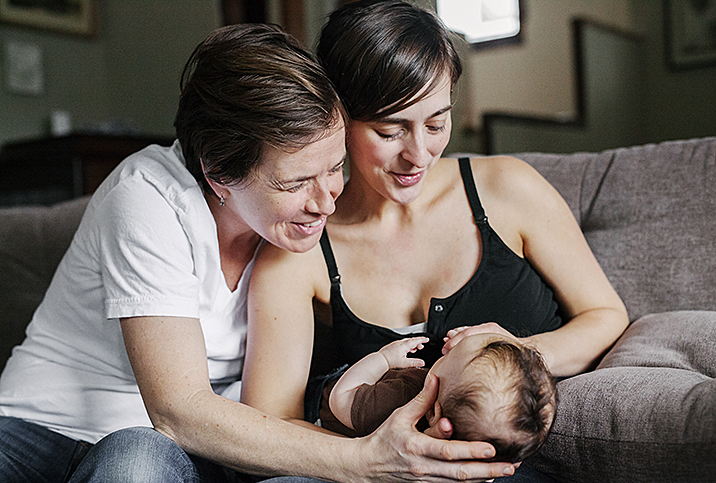Reproductive Therapists Provide Mental Health Support to Parents

When Nataly Petrovic started working as a reproductive therapist in private practice 27 years ago, her clients were largely women experiencing postpartum depression. Over time, her clientele has evolved to include fathers, couples undergoing in vitro fertilization (IVF) and childless women.
"What I noticed is that if I have buy-in with the spouses or significant others, the recovery for the mom, who is my patient, is so much faster," said Petrovic, who is based in Los Angeles. "So, I incorporate fathers and significant others in any way that I can, but mostly through individual therapy or couples therapy."
Reproductive therapy supports individuals and couples in their journey to become parents—and sometimes that means helping people through infertility, the complexities of IVF, postpartum and more.
For women or families seeking help, it can be confusing to decipher between therapy, psychiatry, counseling and all other forms of mental health assistance. While all of those options are there to help you, some may be more applicable to your unique situation.
The difference between reproductive therapy and psychiatry
While reproductive therapists are often categorized as reproductive psychiatrists, the disciplines are different.
"I went to medical school and I prescribe medicines," said Misty Richards, M.D., an assistant clinical professor in the UCLA Division of Child and Adolescent Psychiatry and the Department of Obstetrics and Gynecology. "Reproductive therapists don't do that. I focus on bodily physical symptoms using SSRI medication, mood stabilizers, and sometimes antipsychotics. But, in this population, doing just biology is never enough. Therapy and biology work hand-in-hand because evidence shows best outcomes come with that."
In addition to psychiatrists and therapists, there are reproductive coaches.
For example, Frances Jones, a woman whose infertility led her to adopt, has become a coach who specializes in infertility.
"My clients can expect someone who understands what it feels like to not be able to conceive because I've been there," said Jones, whose infertility coaching practice, Heart Desires Fulfillment Coaching, is based in Memphis. "I don't recommend doctors. I don't give people treatment plans or tell them how to get pregnant. None of that falls under what I do but I will help them get past their emotions and help them get to a place where they can make a choice that's right for them."
How can maternal mental health services help?
Some 13.1 percent of women ages 15 to 49 and 16.2 percent of married women experience impaired fertility, according to the Centers for Disease Control and Prevention (CDC).
"I think the most important thing is to address the loss, how to manage loss, how to cope with loss, and if this is something that they dream of and are unable to have, then we discuss options like adoption when they're ready, but that's sensitive and not necessarily something I dive into," Petrovic said.
Both Petrovic and Richards work at UCLA's Maternal OutpatientMental Health Services (MOMS)Clinic, which offers psychological help for pregnant, perinatal and postpartum women.
"Why I think reproductive therapists are highly sought after is because they understand the nuances that come with reproduction and being a woman," Richards told Giddy. "You don't have to explain a lot of that upfront, which can be really hard with a general therapist."
The benefits of consulting with a reproductive therapist like Petrovic include getting ahead of the pregnancy game, which can create more ease after a baby is born.
"If a couple is going through IVF or if they're just anticipating adding someone to their family, even through adoption, we talk a lot about expectations, what it was like for themselves and their own family unit," she said. "We discuss who's going to stay home, what it means, what the preconceptions are of who does what, and just opening up the notion that it's going to be complicated and messy for those people who have trouble with that."
The complicated emotions following childbirth can also be part of Petrovic's practice.
"I had a client who did not want children but her husband did and they ended up getting pregnant," Petrovic said. "The baby is now over a year old and she continues to be very regretful of having this child. She feels her whole life is doomed. Had we been able to meet and talk prior, who knows what the outcome might have been but she continues to struggle and suffer. It's a conversation that needs to be had prior to any decision being made if there's a disagreement on that front."
Not just for women
Women aren't the only ones suffering from pregnancy-related depression, according to Petrovic.
"There are a lot of things that go on with pregnancy," Petrovic said. "Both people in the relationship can have postpartum depression or suffer from some kind of anxiety around this time. It's not exclusively a female syndrome."
Lack of sleep, emotional adjustments and the new experience of parenthood can affect everyone in the household. About 10 percent of fathers experience depression before or after their baby is born, according to the Journal of the American Medical Association.
Men can also be emotionally impacted by infertility, navigating IVF and other fertility aids and their partner's pregnancy. Supporting each other through the difficulties and stress by prioritizing mental health is a key way to strengthen the relationship and keep your family strong.




















